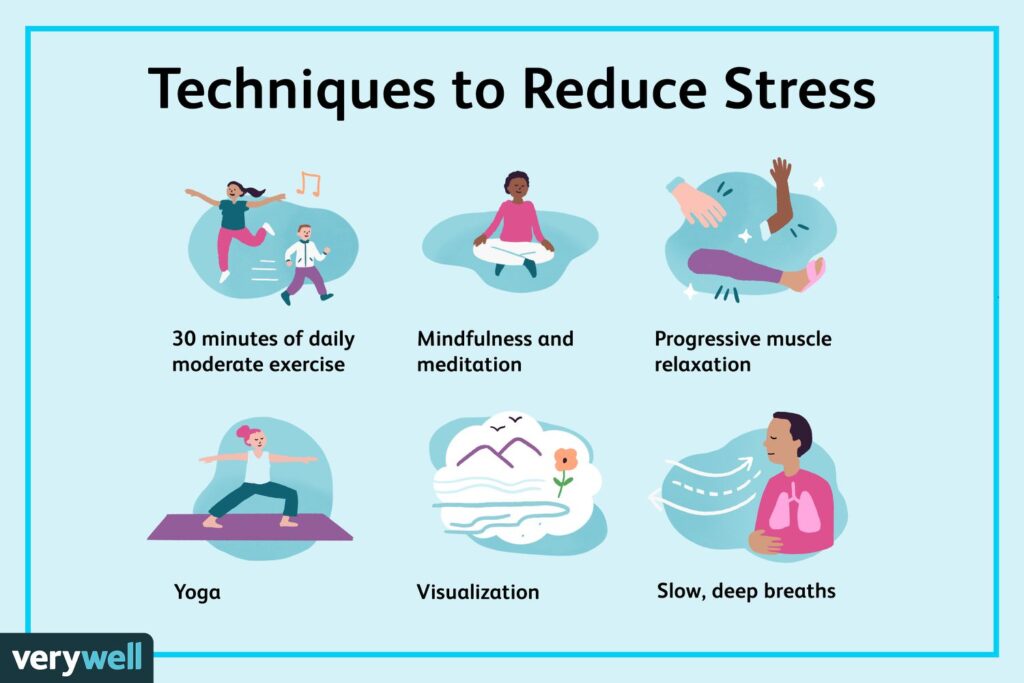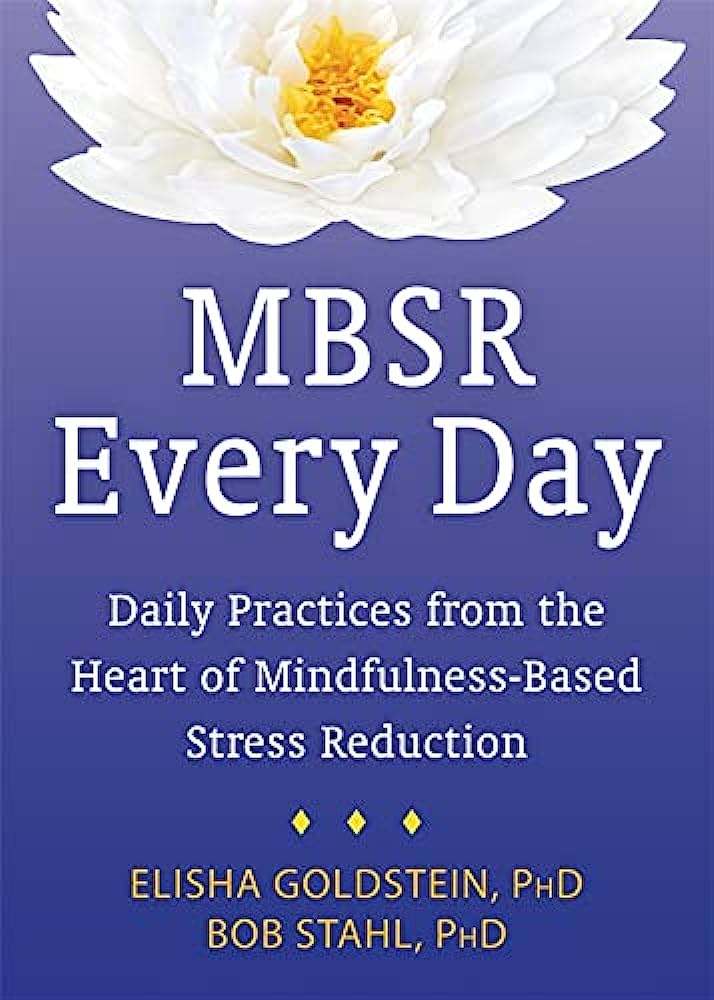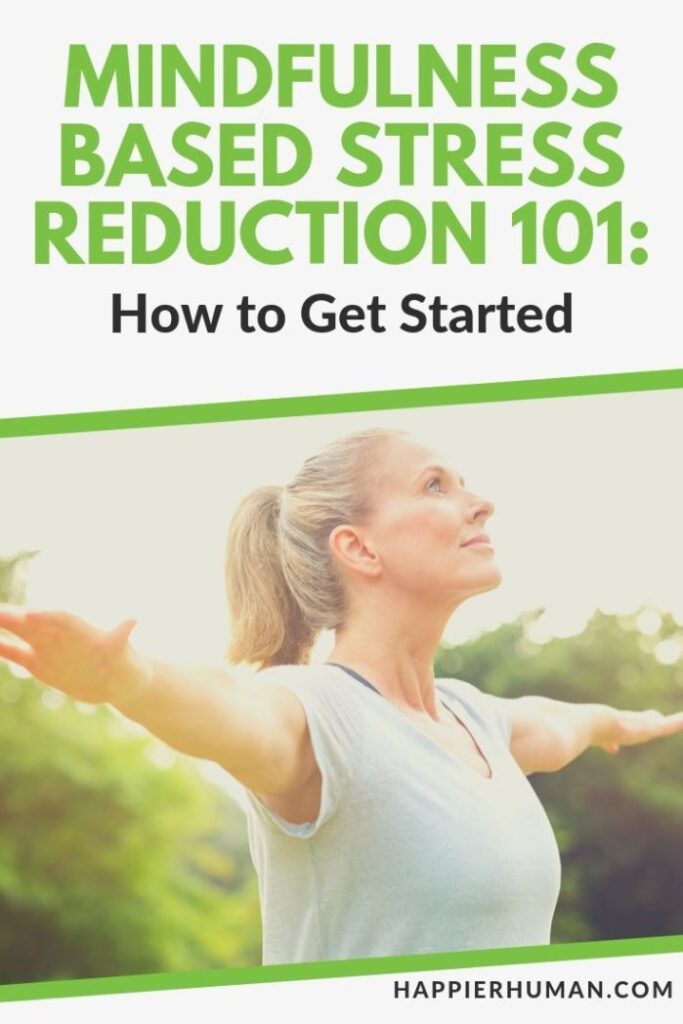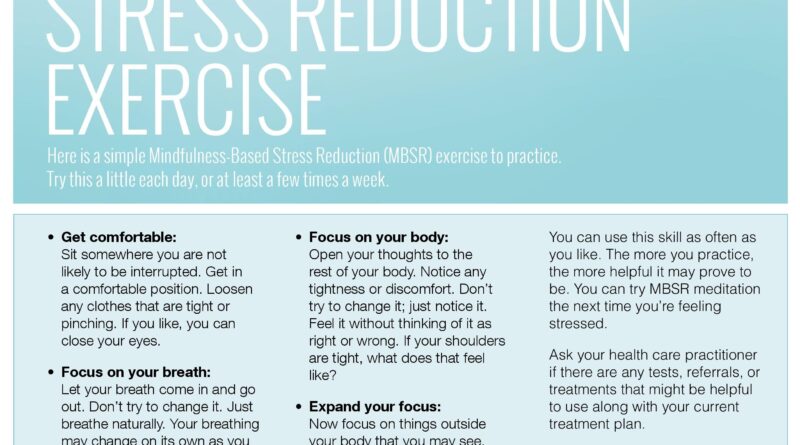Mindfulness-Based Stress Reduction: Activities For Everyday Practice
Are you constantly feeling overwhelmed and stressed in your everyday life? Do you wish there was a way to find some peace and calm amidst the chaos? Well, you’re in luck! In this article, we’re going to dive deep into the world of mindfulness-based stress reduction and explore some activities that you can incorporate into your daily routine to help you find that much-needed tranquility.
Mindfulness-based stress reduction, or MBSR for short, is a proven technique that combines the practice of mindfulness meditation with gentle yoga exercises. It has been widely researched and has shown to be effective in reducing stress and improving overall well-being. By cultivating a greater awareness of the present moment and training your mind to focus on the here and now, you can learn to better manage your stress and find a sense of calm amidst the chaos of everyday life.
In the upcoming sections of this article, we will discuss various activities that you can incorporate into your daily routine to practice mindfulness-based stress reduction. From simple breathing exercises to body scan meditation, there are plenty of techniques that you can explore and find what works best for you. So, if you’re ready to embark on a journey towards a less stressful life, keep reading to learn more about mindfulness-based stress reduction and how you can incorporate it into your everyday practice.

What is Mindfulness-Based Stress Reduction?
Definition and explanation of Mindfulness-Based Stress Reduction
Mindfulness-Based Stress Reduction (MBSR) is a program that was developed by Jon Kabat-Zinn in the late 1970s at the University of Massachusetts Medical School. It is a structured program that combines mindfulness meditation, body awareness, and yoga to help individuals reduce stress and manage various physical and mental health conditions.
The primary goal of MBSR is to cultivate a state of mindfulness, which involves paying attention to the present moment non-judgmentally. This practice helps individuals become more aware of their thoughts, emotions, and bodily sensations, allowing them to respond to stressful situations with greater clarity and compassion.
Benefits of Mindfulness-Based Stress Reduction
MBSR has been widely recognized for its numerous benefits in reducing stress and improving overall well-being. Some of the key benefits of practicing MBSR include:
-
Stress reduction: MBSR has been proven effective in reducing stress levels and promoting relaxation. Through the practice of mindfulness, individuals learn to observe their thoughts and emotions without getting caught up in them, leading to a greater sense of calm and tranquility.
-
Improved mental health: MBSR has been shown to be effective in reducing symptoms of anxiety and depression. By cultivating mindfulness, individuals gain a greater awareness of their thoughts and emotions and develop the ability to respond to them in a more skillful and compassionate way.
-
Better physical health: MBSR has been found to have positive effects on various physical health conditions, such as chronic pain, high blood pressure, and insomnia. The practice of mindfulness helps individuals become more attuned to their bodies, leading to a greater understanding of the mind-body connection.
-
Enhanced focus and concentration: Regular practice of mindfulness helps improve attention span and cognitive function. By training the mind to focus on the present moment, individuals become less distracted by intrusive thoughts and external stimuli, leading to improved concentration and mental clarity.
-
Increased self-awareness and emotional regulation: MBSR helps individuals develop a greater sense of self-awareness and emotional intelligence. By becoming more aware of their thoughts, emotions, and bodily sensations, individuals gain the ability to recognize and regulate their emotions more effectively.
Understanding Stress and its Impact
Causes and sources of stress
Stress is a natural response to any demand or threat that we perceive. While some stress can be helpful in motivating us to take action, chronic or excessive stress can have detrimental effects on our physical and mental health.
The sources of stress can vary from person to person, but some common causes include work or school pressures, financial difficulties, relationship problems, and major life changes. Additionally, everyday hassles and ongoing problems can also contribute to chronic stress.
Physical and mental effects of stress
When we experience stress, our bodies release hormones like cortisol and adrenaline, which trigger the fight-or-flight response. This response prepares our bodies to either confront the stressor or flee from it. However, when stress becomes chronic, these physiological responses can have negative effects on our health.
Some physical effects of chronic stress include headaches, digestive issues, sleep disturbances, weakened immune system, and increased risk of cardiovascular disease. Mentally, chronic stress can lead to anxiety, depression, irritability, difficulty in concentration, and decreased overall well-being.
Introduction to Mindfulness
Explaining the concept of mindfulness
Mindfulness is the practice of intentionally paying attention to the present moment without judgment. It involves adopting an attitude of curiosity and acceptance towards our thoughts, emotions, and bodily sensations. Rather than getting caught up in past regrets or future worries, mindfulness teaches us to direct our attention to what is happening in the here and now.
Mindfulness can be cultivated through various techniques, such as meditation, body scan, yoga, and mindful movement activities. These practices help individuals develop the ability to observe their experiences with openness and non-reactivity.
Importance of being present in the moment
In today’s fast-paced and demanding world, it is easy to get caught up in the busyness of life and lose touch with the present moment. However, being present is essential for our well-being. When we are fully present, we can fully engage with our experiences, make better decisions, and have more meaningful interactions with others.
Being present also allows us to better manage stress and difficult emotions. By recognizing our thoughts and emotions as temporary experiences, we can respond to them with greater clarity and compassion.
The Mindfulness-Based Stress Reduction Program
Overview of the program structure
The MBSR program typically consists of an eight-week curriculum that includes weekly group sessions and daily home practice. Each session is around two and a half hours long and includes guided meditation practice, group dialogue, and exploration of various mindfulness techniques.
Components of the program: meditation, body scan, yoga, etc.
The MBSR program incorporates several key components to help individuals develop mindfulness and reduce stress. Some of these components include:
-
Meditation: The cornerstone of the MBSR program is mindfulness meditation. Participants are guided to pay attention to their breath, bodily sensations, thoughts, and emotions. By observing these experiences without judgment, individuals learn to develop a sense of presence and increase their awareness of the present moment.
-
Body scan: The body scan is a guided meditation practice that involves systematically scanning the body from head to toe, noticing any physical sensations or areas of tension. This practice helps individuals develop body awareness and release physical tension.
-
Yoga: The MBSR program also incorporates gentle yoga exercises to promote physical flexibility, strength, and body awareness. Yoga poses are practiced mindfully, emphasizing the connection between the mind and body.
-
Mindful movement: Apart from formal meditation and yoga practices, MBSR also encourages individuals to engage in mindful movement activities such as walking, running, or any form of exercise. The focus is on paying attention to the sensations of the body, the rhythm of movement, and the environment.

Activities for Everyday Practice
Breathing exercises for stress reduction
One simple yet effective way to incorporate mindfulness into your daily routine is through mindful breathing exercises. Here’s a breathing exercise you can try:
- Find a comfortable seated position or lie down on your back.
- Close your eyes and take a moment to settle into the present moment.
- Slowly take a deep breath in through your nose, counting to four.
- Hold your breath for a brief moment.
- Exhale slowly through your mouth, counting to six.
- Repeat this cycle for several minutes, focusing all your attention on the sensation of your breath.
Mindful walking and movement activities
Walking is an everyday activity that can easily be transformed into a mindful practice. Here’s how you can practice mindful walking:
- Find a quiet and peaceful place to walk, such as a park or a nature trail.
- As you begin walking, bring your attention to the sensation of your feet touching the ground.
- Notice how your body moves with each step. Pay attention to the shifting of your weight, the movement of your muscles, and the rhythm of your breath.
- Engage all your senses as you walk. Notice the sounds around you, the temperature of the air, and the sights that catch your eye.
- Whenever you find your mind wandering, gently bring your attention back to the present moment and continue walking mindfully.
Mindful eating and drinking practices
Eating and drinking can also be opportunities for mindfulness. Here are some ways to practice mindful eating and drinking:
- Before you start eating or drinking, take a moment to pause and bring your attention to the present moment.
- Notice the aroma, color, and texture of the food or drink in front of you.
- Take small bites or sips and chew slowly, savoring the flavors and textures.
- Pay attention to the sensations in your body as you eat or drink. Notice any feelings of hunger, fullness, or satisfaction.
- Avoid distractions while eating, such as watching TV or using electronic devices. Instead, focus on the experience of eating and nourishing your body.
Incorporating Mindfulness into Daily Routine
Creating a dedicated mindfulness space
Having a dedicated space for mindfulness practice can help create a sense of structure and routine. Here are some tips for creating a mindfulness space:
- Choose a quiet and peaceful area in your home where you can practice without distractions.
- Decorate the space with items that promote relaxation and tranquility, such as pillows, candles, or plants.
- Keep the space clean and tidy, free from clutter or any distractions.
- Consider playing soft instrumental music or nature sounds to create a calming atmosphere.
- Make it a habit to spend a few minutes in your mindfulness space every day, even if it’s just for a short meditation or breathing exercise.
Setting reminders for mindfulness practice
Integrating mindfulness into your daily routine can be facilitated by setting reminders. Here are some ways to remind yourself to practice mindfulness:
- Use smartphone apps or alarms: Set reminders on your phone that prompt you to take a few minutes for mindfulness practice throughout the day.
- Post-it notes: Place sticky notes with mindfulness quotes or reminders in visible places, such as your desk or mirror, to serve as gentle cues.
- Be mindful during daily activities: Use everyday activities, such as brushing your teeth or waiting in line, as reminders to take a moment to be present and practice mindfulness.

Benefits of Regular Mindfulness Practice
Reduced stress and anxiety levels
One of the most significant benefits of regular mindfulness practice is a reduction in stress and anxiety levels. By cultivating mindfulness, individuals become more aware of their stress triggers and develop the ability to respond rather than react. This increased self-awareness allows for better stress management and a greater sense of calm and well-being.
Improved focus and concentration
Regular mindfulness practice has been shown to enhance focus and concentration. By training the mind to stay present and non-judgmentally aware of the present moment, individuals become better equipped to remain focused on tasks at hand. This improved ability to concentrate can lead to increased productivity and effectiveness in various areas of life.
Enhanced self-awareness and emotional regulation
Mindfulness practice helps individuals develop a greater sense of self-awareness, which is the ability to observe one’s thoughts, emotions, and bodily sensations non-judgmentally. This increased self-awareness allows individuals to recognize their emotional patterns and triggers, leading to improved emotional regulation. By responding to emotions rather than reacting, individuals can cultivate a greater sense of emotional well-being and relationship satisfaction.
Scientific Research on Mindfulness-Based Stress Reduction
Overview of studies supporting the effectiveness of MBSR
MBSR has gained substantial scientific research support for its effectiveness in reducing stress and improving mental health. Numerous studies have shown its benefits in various populations, such as individuals with anxiety disorders, depression, chronic pain, and even healthy individuals looking to enhance their well-being.
Evidence-based benefits from scientific research
Scientific research on MBSR has demonstrated several evidence-based benefits, including:
-
Stress reduction: Numerous studies have found that MBSR significantly reduces perceived stress and stress-related symptoms.
-
Improved mental health: MBSR has been shown to be effective in reducing symptoms of anxiety and depression, as well as improving psychological well-being and quality of life.
-
Better physical health outcomes: Research has shown that MBSR can lead to improvements in physical health outcomes, such as reduced pain severity and improved immune function.
-
Enhanced cognitive function: Studies have found that MBSR may lead to improvements in attention, working memory, and cognitive flexibility.
-
Changes in brain structure and function: Neuroimaging research has shown that MBSR can result in structural and functional changes in the brain regions associated with attention, emotional regulation, and stress response.

Mindfulness-Based Stress Reduction for Specific Populations
MBSR for students and young adults
MBSR has shown promise in improving well-being and reducing stress among students and young adults. As this population often faces academic, social, and personal pressures, MBSR can provide valuable tools for stress management, enhancing focus and concentration, and promoting overall resilience.
MBSR for workplace stress management
The workplace can be a significant source of stress for many individuals. MBSR programs tailored for the workplace have been found to improve job satisfaction, reduce burnout, and increase overall well-being among employees. By promoting self-care and self-awareness, MBSR can help individuals cope with work-related stressors more effectively.
MBSR for chronic pain and illness management
Chronic pain and illness can have a profound impact on an individual’s quality of life. MBSR has been shown to be effective in reducing pain severity and improving coping mechanisms among individuals with chronic pain conditions. It has also been found to enhance overall well-being and reduce symptoms of anxiety and depression in individuals with various chronic illnesses.
Tips for Maintaining a Mindfulness Practice
Start with small achievable goals
When starting a mindfulness practice, it is essential to start with small achievable goals. Begin by setting aside just a few minutes each day for practice and gradually increase the duration as you become more comfortable. Starting small helps prevent feelings of overwhelm or pressure, increasing the likelihood of maintaining a regular practice.
Find a supportive community or group
Practicing mindfulness with others can provide valuable support and encouragement. Consider joining a local mindfulness group or finding online communities focused on mindfulness practice. Being part of a supportive community can help you stay motivated and connected to the practice.
Stay consistent in your practice
Consistency is key when it comes to mindfulness practice. Try to establish a regular practice routine, whether it’s in the morning, during your lunch break, or in the evening. Consistency helps to reinforce the habit and allows you to experience the cumulative benefits of mindfulness over time.

Potential Challenges and How to Overcome Them
Dealing with distractions and wandering thoughts
Distractions and wandering thoughts are natural and common challenges in mindfulness practice. When distractions arise, simply notice them without judgment and gently bring your attention back to your breath, body, or whatever anchor you are focusing on. With time and practice, distractions will become less frequent, and your ability to maintain focus will improve.
Handling resistance or difficulty in establishing a routine
Resistance or difficulty in establishing a mindfulness routine is also normal. It can be helpful to remind yourself of the potential benefits and, more importantly, be compassionate with yourself. Remember that mindfulness is a practice, and like any skill, it takes time and effort to develop. Be patient and gentle as you navigate any challenges that arise.
Mindfulness-Based Stress Reduction Resources
Recommended books and literature
- “Full Catastrophe Living” by Jon Kabat-Zinn
- “Wherever You Go, There You Are” by Jon Kabat-Zinn
- “The Miracle of Mindfulness” by Thich Nhat Hanh
- “The Mindful Way Through Depression” by Mark Williams, John Teasdale, Zindel Segal, and Jon Kabat-Zinn
Online courses and guided meditation resources
- Headspace: A popular meditation app offering guided meditations for various purposes, including stress reduction and mindfulness.
- Insight Timer: A free meditation app with a vast library of guided meditations from teachers around the world.
- UCLA Mindful Awareness Research Center: Offers free recordings of guided mindfulness practices led by experienced teachers.
Case Studies and Personal Experiences with MBSR
Real-life examples of individuals benefitting from MBSR
There are numerous personal accounts of individuals who have experienced significant benefits from practicing MBSR. These accounts often highlight reduced stress levels, improved mental health, and enhanced overall well-being.
Stories of personal transformation and growth
Many individuals have shared stories of personal transformation and growth as a result of their MBSR practice. From overcoming anxiety disorders to finding a new perspective on life, these stories illustrate the profound impact that mindfulness can have on individuals’ lives.
Conclusion
Incorporating a mindfulness-based stress reduction practice into your daily routine can greatly improve your overall well-being. By engaging in activities such as breathing exercises, mindful walking, and mindful eating, you can reduce stress levels, enhance focus and concentration, and cultivate greater self-awareness. With consistent practice and the support of resources such as books, online courses, and community groups, MBSR can become an integral part of your life, promoting a healthier and more balanced approach to stress management. So why not start exploring mindfulness-based stress reduction activities today and experience the transformative power of mindfulness in your everyday life?

